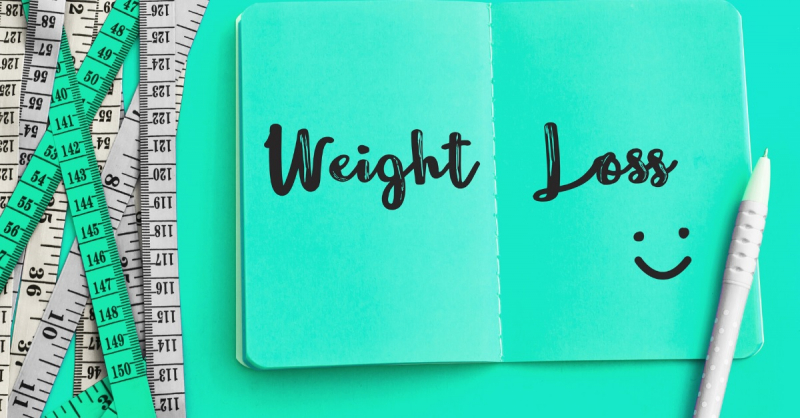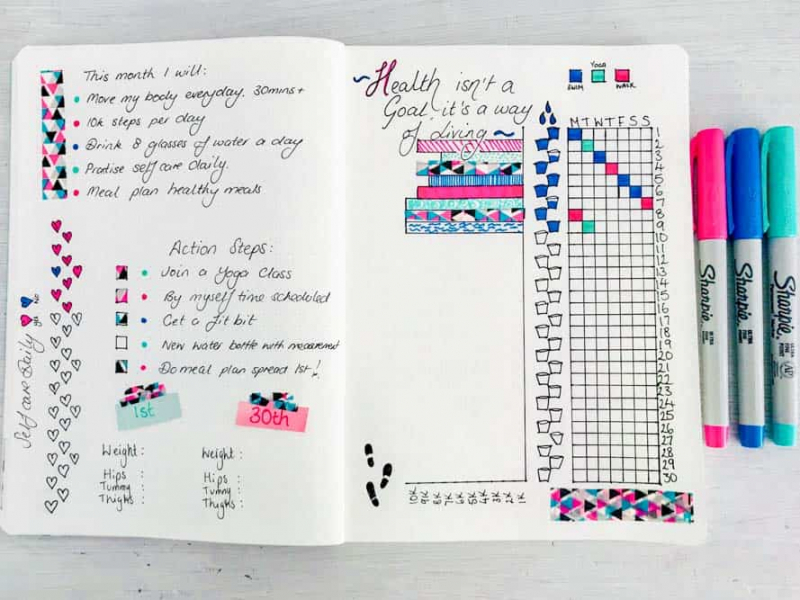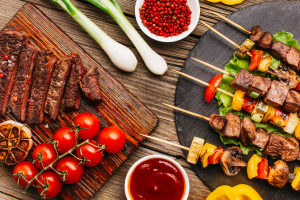Top 10 Ways to Motivate Yourself to Lose Weight
It might be difficult to get started and keep to a healthy weight-loss strategy. People frequently lack the ambition to get started or lose motivation to ... read more...continue. Fortunately, motivation is something that can be increased. Below are some of the different ways to keep oneself motivated to lose weight.
-
"Sometimes people can feel unmotivated because they lose sight of why they're making changes in the first place". says Edwina Clark, R.D., head of nutrition and wellness at Yummly.
Make clear and write down all of the reasons you want to lose weight. This will keep you focused and motivated to achieve your weight-loss objectives. Try to read them every day and use them as a reminder when you're tempted to drop your weight-loss goals.Preventing diabetes, keeping up with grandchildren, looking your best for an event, enhancing your self-confidence, or fitting into a certain pair of jeans might be among your reasons. Many people begin losing weight because their doctor advises them to, but research suggests that people are more likely to succeed if their desire for weight loss comes from inside.

Determine Why You Want to Lose Weight 
Determine Why You Want to Lose Weight -
Many diets and diet products claim to help you lose weight quickly and easily. However, most doctors advise dropping only 1–2 pounds (0.5–1 kg) per week. Setting impossible objectives might lead to frustration and a decision to give up. Setting and achieving achievable goals, on the other hand, leads to a sense of success.
People who achieve their self-set weight loss objectives are also more likely to keep it off in the long run. Women who planned to lose the most weight were the most likely to drop out of the program, according to one research based on data from numerous weight loss centers. The good news is that even a little weight decrease of 5–10% of your body weight can make a significant difference in your health. It's just 9–18 pounds (4–8 kg) if you're 180 pounds (82 kg). It's 13–25 pounds (6–11 kg) if you're 250 pounds (113 kg). In fact, decreasing 5–10% of your body weight can: improve blood sugar control, reduce the risk of heart disease, lower cholesterol levels, reduce joint pain and reduce the risk of certain cancers

Have Realistic Expectations 
Have Realistic Expectations -
Many people who are attempting to lose weight only set outcome goals, or objectives that they want to achieve at the end of the journey. Your final target weight is usually an end objective. However, concentrating solely on the end result might derail your motivation. They might be too distant at times, leaving you feeling overwhelmed.
Instead, you should create process goals or the steps you'll take to get your intended result. Exercising four times a week is an example of a process objective. When compared to those who concentrated solely on weight loss outcomes, those who focused on the process were more likely to lose weight and less likely to break from their diets, according to a study of 126 overweight women participating in a weight loss program. To set strong goals, consider using SMART goals (SMART stands for Specific, Measurable, Achievable, Realistic, Time-based). The following are some examples of SMART goals: Next week, I'll go for a 30-minute brisk walk five days a week; This week, I'm going to eat four servings of vegetables every day; This week, I'm just going to drink one soda.

Focus on Process Goals 
Focus on Process Goals -
Find a weight-loss strategy that you can keep to, and stay away from plans that are practically difficult to stick to overtime. While there are hundreds of different diets, most of them are centered on calorie restriction.
Weight reduction can be achieved by reducing your calorie intake, however dieting, particularly yo-yo dieting, has been linked to future weight gain. As a result, stay away from restrictive diets that entirely eliminate certain foods. According to research, those who have an "all or nothing" attitude are less likely to lose weight. Instead, consider creating your own personalized strategy. The following food habits have been shown to aid weight loss, including decreasing calorie intake, reducing portion sizes, reducing the frequency of snacks, reducing fried food and desserts and including fruits and vegetables.

Pick a Plan That Fits Your Lifestyle 
Pick a Plan That Fits Your Lifestyle -
Weight loss motivation and success are dependent on self-monitoring. People who keep track of their food consumption are more likely to lose weight and keep it off, according to research.
A weight-loss journal, as you probably already know, is a way to keep track of everything you eat and drink each day. If you know how to use it, a weight-loss journal may be an extremely useful tool on your journey to better health. However, you must write down everything you consume in order to keep a food journal correctly. This includes meals, snacks, and even the candy you stole from a colleague's desk. In your food journal, you may also write down your feelings. This might assist you in identifying overeating triggers and finding healthier ways to cope. Food journals can be kept on paper or on a website or app, they've all been proven to work.

Keep a Weight Loss Journal 
Keep a Weight Loss Journal -
Losing weight is difficult, so praise yourself for your accomplishments to keep yourself motivated. When you achieve a goal, give yourself a pat on the back. Social media and weight loss websites with community pages are excellent places to share your accomplishments and receive encouragement. You will be more motivated if you feel proud of yourself.
Remember to celebrate behavior changes rather than merely focusing on reaching a certain number on the scale. Take a bubble bath or organize a fun night with friends if you reached your goal of exercising four times per week, for example. Furthermore, you may increase your motivation by rewarding yourself. However, it’s important to pick appropriate rewards. Rewarding oneself with food is not a good idea. Some good examples of rewards are as follows: going to a movie, buying a new running top or taking a cooking class.

Celebrate Your Successes 
Celebrate Your Successes -
To stay motivated, people want regular support and positive feedback. Inform your close relatives and friends about your weight-loss objectives so that they can support you along the way.
Finding a weight-loss buddy is also helpful for many people. You can work out together and motivate each other along the way. Also, think about joining a support group. Participants in a weight-reduction program with friends, according to one research, performed a better job of maintaining their weight loss. Six months after the programs ended, two-thirds of those who registered with friends had sustained their weight loss. Only a quarter of those who visited on their own had the same level of success. Support groups, both in-person and online, have been shown to be effective.

Find Social Support 
Find Social Support -
“Commitment is the foundation of great accomplishments", Dr. Heidi Reeder, Author and Professor. People all desire to achieve a health goal at some point in their lives, whether it was to lose weight, exercise more or make better dietary choices. However, those who have attempted to turn their dreams into reality, know that the path to success can be paved with potholes and speed bumps.
According to research, those who make a public commitment are more likely to stick to their objectives. You will be more accountable if you tell people about your weight loss objectives. Tell your close friends and family about it, and consider sharing it on social media. The more people you tell about your goals, the more responsible you become. Consider getting a gym membership, a package of workout courses, or pre-paying for a 5K. If you have already invested, you are more likely to follow through.

Make a Commitment 
Make a Commitment -
People who have high expectations and believe in their ability to achieve their objectives are more likely to lose weight. People who use "change talk" are also more likely to stick to their plans. Making statements about your commitment to behavioral changes, the reasons for them, and the activities you will take to achieve your goals is known as change talk. As a result, start talking about your weight loss in a positive way.
People who spend a lot of time dreaming about their ideal weight are less likely to achieve it, according to a study. This is referred to be "mental indulging". You should mentally contrast instead. Spend a few minutes mentally imagining yourself reaching your ideal weight, and then spend another few minutes imagining any potential obstacles. In one research involving 134 students, they were asked to mentally indulge or mentally contrast their weight-loss objectives. Those who mentally contrast were more likely to act. They took fewer calories, increased their physical activity, and consumed fewer high-calorie foods. Mental contrasting, as shown in this study, is more motivating and leads to more action than mental indulging, which can fool your brain into thinking you've already achieved your objectives and drive you to never take any action to achieve them.

Think and Talk Positively 
Think and Talk Positively -
Everyday pressures will inevitably occur. Developing proper coping skills and finding ways to plan for them can help you stay motivated no matter what life throws at you.
There will always be pressures at work and at home. It's critical to begin problem-solving and thinking about these potential weight-loss obstacles. This will keep you on track and prevent you from losing motivation. You can consider using some of these methods to cope with stress: exercise. practice square breathing, take a bath, go outside and get some fresh air, call a friend or ask for help. Don't forget to plan for holidays, social events, and eating out. You may look for healthy options on restaurant menus ahead of time. You may bring a healthy dish to a party or eat smaller portions.

Plan for Challenges and Setbacks 
Plan for Challenges and Setbacks































